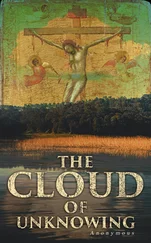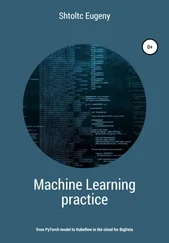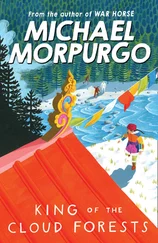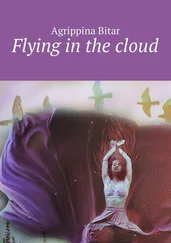Matt Richtel - The Cloud
Здесь есть возможность читать онлайн «Matt Richtel - The Cloud» весь текст электронной книги совершенно бесплатно (целиком полную версию без сокращений). В некоторых случаях можно слушать аудио, скачать через торрент в формате fb2 и присутствует краткое содержание. Жанр: Триллер, на английском языке. Описание произведения, (предисловие) а так же отзывы посетителей доступны на портале библиотеки ЛибКат.
- Название:The Cloud
- Автор:
- Жанр:
- Год:неизвестен
- ISBN:нет данных
- Рейтинг книги:3 / 5. Голосов: 1
-
Избранное:Добавить в избранное
- Отзывы:
-
Ваша оценка:
- 60
- 1
- 2
- 3
- 4
- 5
The Cloud: краткое содержание, описание и аннотация
Предлагаем к чтению аннотацию, описание, краткое содержание или предисловие (зависит от того, что написал сам автор книги «The Cloud»). Если вы не нашли необходимую информацию о книге — напишите в комментариях, мы постараемся отыскать её.
The Cloud — читать онлайн бесплатно полную книгу (весь текст) целиком
Ниже представлен текст книги, разбитый по страницам. Система сохранения места последней прочитанной страницы, позволяет с удобством читать онлайн бесплатно книгу «The Cloud», без необходимости каждый раз заново искать на чём Вы остановились. Поставьте закладку, и сможете в любой момент перейти на страницу, на которой закончили чтение.
Интервал:
Закладка:
Matt Richtel
The Cloud
Introduction
Twelve Years Ago
Before it was chips in Silicon Valley, it was fruit. Orchards dominated the landscape here, a tapestry of cherries, apricots and plums, eventually giving way, acre by acre, to semiconductors and their spawn.
Manufacturing, labs, suburban offices, open-air Eichler homes and their knock-offs added enough concrete and density to cause a modest rise in the average temperature. It was sufficient to make the climate less than perfect for farming. But, no matter, the conditions remained plenty hospitable for the entrepreneurs, investors and engineers who combined forces to make magical electronics the region’s chief export.
On this lazy March afternoon, a fruity fragrance carries on the light wind, a throwback to more pastoral times. Two girls frolic in the front yard of the Menlo Park house with the white picket fence. Without warning, the brown-haired one with the scrawny arms and purple blouse seems struck with an idea, and suddenly bolts.
She opens the white gate, seeing something, hearing something, something otherwise unseen, and runs into the street, like a fawn or an impulsive child half her age. She never sees the Volvo, nor its driver.
“An inexplicable catastrophe,” the Palo Alto Daily News bemoans the next day. “It is the likes of which our cozy and insulated part of the world has been so often, thankfully, spared.”
“What, we may ask ourselves over and over without ever getting a satisfactory answer, can possibly explain this tragedy?”
Roiling change, the complex swirl of progress, a future seductive and foreboding. What can possibly explain this tragedy?
THE CLOUD
1
Present Day
Istare into the dark tunnel and find myself imagining how it would look to Isaac.
To an eight-month-old, the shadowed subway opening wouldn’t seem ominous. It would be a grand curiosity. Shards of reflected light frame its entrance like shiny pieces of broken glass. Would Isaac try to touch them? Would he finger a droplet of misty water rolling down the jagged wall and put it on his tongue?
The cavern wouldn’t frighten my son. It would excite him with possibility and mystery.
A horn blares and I flinch. The night’s last express approaches. I’m without company on the below-ground platform but I am joined by a wicked aroma. It’s coming from a green, paint-chipped metal trash can that, from the scent, must contain a day’s worth of half-eaten fruit and the carcass of an extremely dead sandwich. The trash can sits along the wall, beneath a dimly lit poster advertising a service that promises to turn your mobile phone into a day-trading terminal. More garbage. “Buy Low, Sell High, Commute Profitably.”
Isaac would love little more than exploring the contours of the iPhone with his mouth.
I turn back to the track and squint across the platform. I’m looking for the woman with the triathlete’s calves. I saw her upstairs at the turnstile, a brunette with darkly tinted skin wearing a skirt and a look of compassion. I watched her put some money in a cup at the feet of a figure sitting in the shadows upstairs, and she turned away with a kindly, worried look.
How come all the beautiful women who look like they were born to heal the damaged are going a different direction than me on the train?
Would she be a great mom?
Would she be impressed that tomorrow I become this year’s recipient of a national magazine award for investigative reporting? Would she help me feel impressed?
A rumbling roars from the tunnel. It’s not yet my train, the K, but the nearing Express, expressing.
Over the din, I hear rustling from behind me; something heavy hits the pavement. A boot step, then another. I turn to see a mountainous man in a leather jacket materialize from the darkness, stumbling toward me. He’s the picture of a San Francisco drunk, downtrodden but wearing a fashionable coat with collar upturned, curly beard, and dark shades.
I’m tempted to ask him if he’s okay as the train whooshes out of the tunnel into the station.
The drunkard lunges, or trips. He careens toward me, leading with his arms as if pushing through a revolving door.
The train’s warning horn explodes.
Powerful palms crash against my chest, fingers claw my sweatshirt. I stumble backward toward the track. I flail to cling to his beefy forearms.
I feel the train pass behind me, airbrushing my scalp.
Isaac. My son. Will I see him again?
One last tactic.
I yank the drunk on top of me. Our momentum abruptly changes. We fall straight down to the pavement. My backpack slams into the ground. My spine unfolds.
Crack. I see an instant of light, then one of black, then a hazy return to the moment. I smell something like burning tires. Then cologne. I feel intense pressure on my chest.
The mountain man lies on top of me. I think: The base of my skull hit the edge of the concrete platform, but after the train passed. I’m alive.
I frantically push and kick the man from atop me. I claw the cement, then roll, panting in downward dog. I run a triage check. Limbs moving, no obvious fractures. I feel sticky warmth at the back of my skull, a cut but not deep, and shy of the heavy capillary bed on top of my head that would bleed profusely and require stitches. I attended med school a decade ago, before quitting to become a journalist, but I’m still fluent in the anatomy of survival.
I look up to see the drunk. He’s ambling awkwardly. He holds his arms close to his chest. He disappears into a darkened stairwell. From his pocket, something falls, a piece of paper, onto the damp cement.
“Don’t move. You might be hurt.” The voice comes from my right.
It’s the brunette, the one from the turnstile.
I blink hard. She’s blurry.
“Breathe.” She kneels and extends an arm and puts fingers on my shoulder.
Her touch brings attention to the acute pain near my deltoid. The strap of my ratty black backpack must’ve given me a nifty friction burn. But it also probably spared me a rougher fall. The pack, which follows me everywhere, contains an overflow of magazines and notes, the flora and fauna from which journalism sprouts and, tonight, a serendipitous pillow. Lucky I left my laptop home today, for its sake and mine.
I exhale.
I picture the man coming at me, falling but somehow purposeful, his face camouflaged.
“Say something,” the brunette encourages. “Did you know that guy?”
“Scleroderma.”
“What?”
I don’t express my thought: the drunk’s skin was pulled tight against his forehead and around his eyes. Scleroderma means “tight skin.” Its presence can indicate a rare disease of the organs, very rare, so these days it is much more likely to indicate a visit to the dermatologist; this drunk recently had an injection of Botox that tightened his wrinkles. Rich drunk.
My scrutiny is a sign of my own condition: excessive medical analysis. Some people focus on faces, or names. I remember pathologies. My not-very-exciting sixth sense is seeing illnesses and physical conditions, a vestige of med school. Jaundice, clinical water retention, lazy eye, gout, misaligned spine, all the herpes variants, emphysema cough, flat-footedness. The obsessive medical labeler can identify the flat-footer even when the condition hustles by, wearing shoes. Even though I’d abdicated a career in medicine for one in medical journalism-after realizing I lacked the intensity and rigidity to be a good doctor-I can’t shake associating humans with their conditions.
“It doesn’t feel right.” I look in the direction the man stumbled away.
Читать дальшеИнтервал:
Закладка:
Похожие книги на «The Cloud»
Представляем Вашему вниманию похожие книги на «The Cloud» списком для выбора. Мы отобрали схожую по названию и смыслу литературу в надежде предоставить читателям больше вариантов отыскать новые, интересные, ещё непрочитанные произведения.
Обсуждение, отзывы о книге «The Cloud» и просто собственные мнения читателей. Оставьте ваши комментарии, напишите, что Вы думаете о произведении, его смысле или главных героях. Укажите что конкретно понравилось, а что нет, и почему Вы так считаете.












